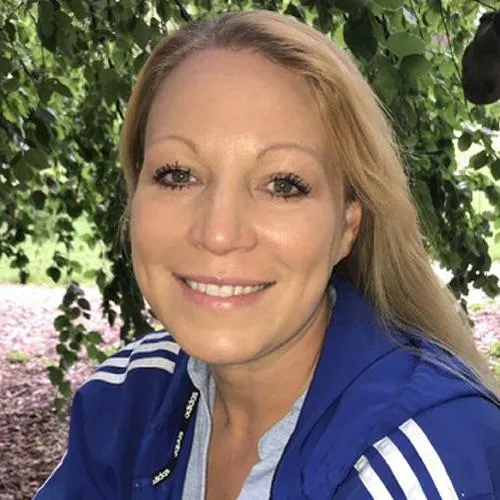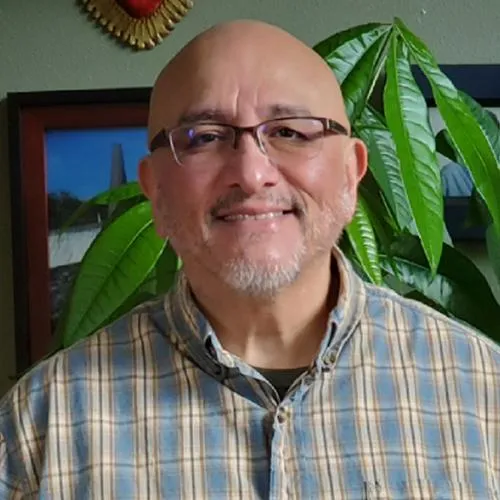Union Activists Protect Vacation Days

When management upended vacation scheduling practices at SOLA Spokane, the Member Action Team mobilized to protect their coworkers’ vacation days.
State-operated Living Alternatives (SOLAs) are community-based homes for adults and children with developmental disabilities.
Clients in SOLAs receive individualized support from attendant counselors to manage their medications, set and reach personal goals, shop for groceries, and build relationships within their community.
The counselors providing these supports have been stretched thin for years. Washington State’s upside-down tax code means funding gaps and difficulty recruiting and retaining staff is the norm – as is staff burnout.
Then the pandemic hit, and things went from bad to worse.
COVID-19 restrictions and the emotional impact of the pandemic had a snowball effect on SOLA staff and participants.
Participants at SOLA at a minimum should be provided the opportunity to leave their home for a meaningful activity in the community five days a week. That was challenging with most businesses, schools, and day programs closed. To make matters worse, families and friends couldn’t visit due to state and local health mandates.
“The individuals we serve thrive on predictability and structure," said Jessica Crowell, a WFSE shop steward and attendant counselor 2 at SOLA. "Not being able to get energy out with positive outlets increases maladaptive behaviors dramatically.”

“We have specific de-escalation techniques we can use to keep the individuals we serve and ourselves safe. Normally we would have to use them every few days. During the pandemic, it was multiple times a day.”
If SOLA staff ever needed their vacation days, it was now.
But then, toward the end of 2020, management made an abrupt change to the vacation scheduling system that resulted in the eighteen least-senior SOLA attendant counselors being unable to put in vacation requests.
Working at a 24/7 operation means you have to get your vacations scheduled a year in advance. In years past, SOLA used a calendar-passing system where the employees with the most seniority got to pick their vacation days for the following year and then passed it on to those with the second-longest seniority and so on.
Instead of starting the calendar in early November, SOLA management waited until the end of December to announce the scheduling process, and didn’t introduce a physical calendar. They just asked employees what days they wanted to take off.
But there was a problem.
Nobody could see which days had already been taken, so they were forced to shoot blind and hope they had requested an available segment of days. Many employees had their segments rejected and had to guess again, or wait to do first-come-first-serve, a far less guaranteed option.
By the time the March cutoff for vacation requests came and went, over a dozen people were left off the calendar altogether and could not put in any vacation days for the year, unless they got lucky later and received a day via first-come-first-serve.
“I was planning on quitting. I was going to see my son graduate from boot camp no matter what.”

The first person who was informed they wouldn’t be able to put in vacation time was Shannon Rushing, an attendant counselor 2 who works in a SOLA home with four clients, three of whom require comprehensive physical assistance like bathing and help shifting positions during the night so they can sleep.
Shannon needed time off to see her son graduate from boot camp.
“I hadn’t seen my son in three months. That’s the longest I’ve gone without seeing him. I had a chance to see him graduate, and my boss was telling me, ‘No, the deadline passed.’ It felt like someone was going out of their way to mess with us. I was planning on quitting. I was going to see my son graduate from boot camp no matter what. This is time we earned.”
One person the calendar fiasco didn’t affect directly was Ramiro Vijarro.

An attendant counselor 2 who supports several clients at a group home, including a quadriplegic who requires food care, Ramiro sits at number four in seniority, so he was able to get his vacation request accepted with no problem.
But he knew how terrible it was for his peers, and he felt he needed to speak up.
“I was pretty surprised by how management handled it. They basically just said, ‘You didn’t meet the deadline. Sorry.’ I knew it wasn’t right, so I worked with my union steward, Jessica, to see what we could do. I haven’t been that involved with our union in the past, but this got me involved.”
By the time the March cutoff for vacation requests arrived, the eighteen employees with the least seniority still hadn’t been able to schedule time off with full information.
Throughout March, member activists and WFSE staff attempted an informal resolution with SOLA, but management wasn’t willing to fix the process. So a formal group grievance was filed on behalf of all attendant counselors at SOLA, but oddly the Department of Social and Health Services asked who specifically was represented in the grievance.
Seizing the opportunity for a job action, the SOLA Member Action Team (MAT) divvied up the employee list and made phone calls.
Within a few hours, they had about thirty names down on the grievance, almost entirely from employees who had never been part of a grievance before.
The next day, Labor Relations contacted our union asking how they could settle the grievance.
“In three days we had a signed settlement with what we wanted: an extended calendar process for those who didn’t get their vacation days, and a commitment to bargain with us on how the scheduling system works in the future,” said Jessica Crowell.
Shannon got to see her son graduate!

Next, theMAT Team will work with members to bring the whole membership’s voice to the bargaining table for an improved scheduling process in the future.
The lesson? With a union, employees’ voices are heard, which allows management to make the right decisions!
Not a WFSE Member? Join the nearly 47,000 public servants across Washington in speaking up for our jobs, families and communities. Join today.
